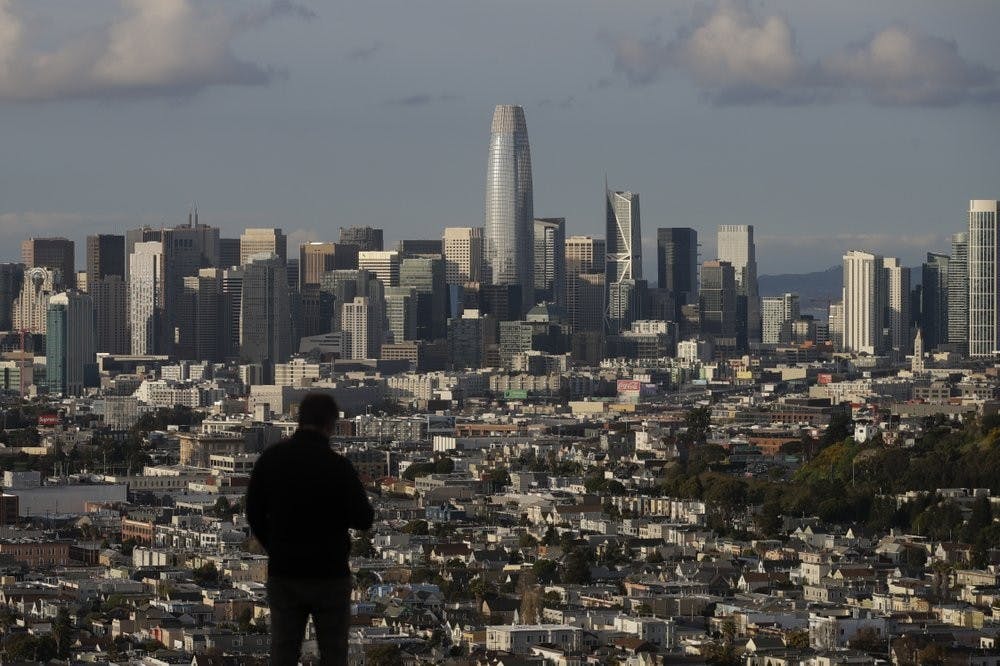Editor’s Note: This listicle is part of a weekly series by The Ball State Daily News summarizing five stories from across the United States. All summaries are based on stories published by The Associated Press.
The U.S. president changing his tone on the COVID-19 pandemic, San Francisco ordering millions to shelter at their homes, uncertainties surrounding the Democratic primaries, the military’s limitations when responding to the virus outbreak and the Federal Reserve’s response to coronavirus concerns make up this week’s five national stories.
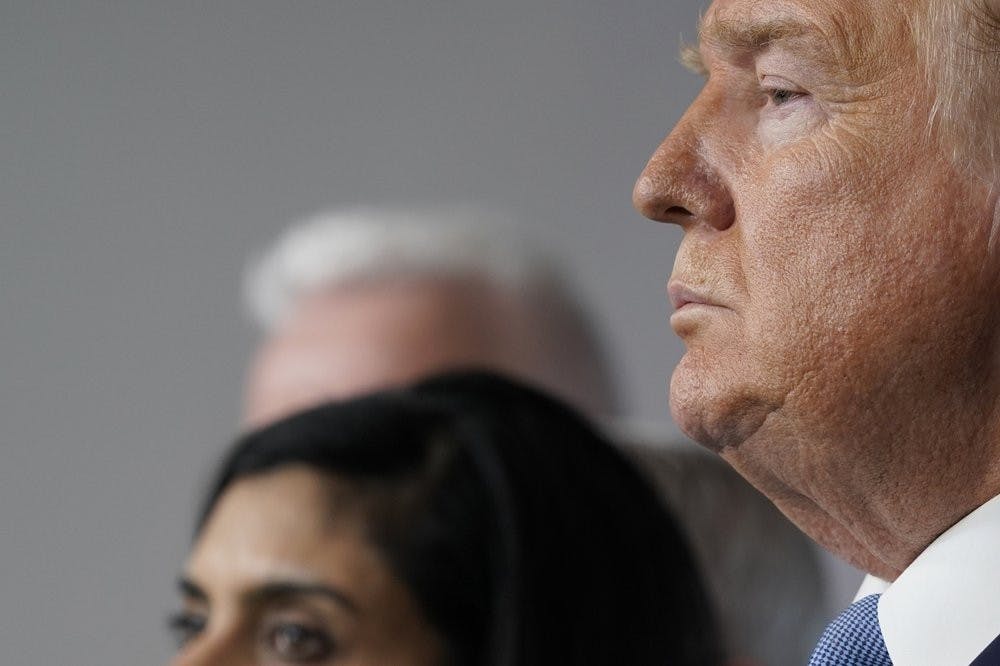
President Donald Trump and Administrator of the Centers for Medicare and Medicaid Services Seema Verma listen during a press briefing with the coronavirus task force, in the Brady press briefing room at the White House, March 16, 2020, in Washington. (AP Photo/Evan Vucci)
Trump changes tone, gets real on virus threat
He called on the country to come together, warned of pain to come and he deferred to the nation’s public health experts while at least momentarily putting aside petty squabbling. After weeks of trying to play down the risk posed by the coronavirus pandemic, President Donald Trump struck a new, more urgent tone Monday as he delivered a sobering message to Americans grappling with a new reality that will dramatically alter their lives for months to come.
Read More: Donald Trump
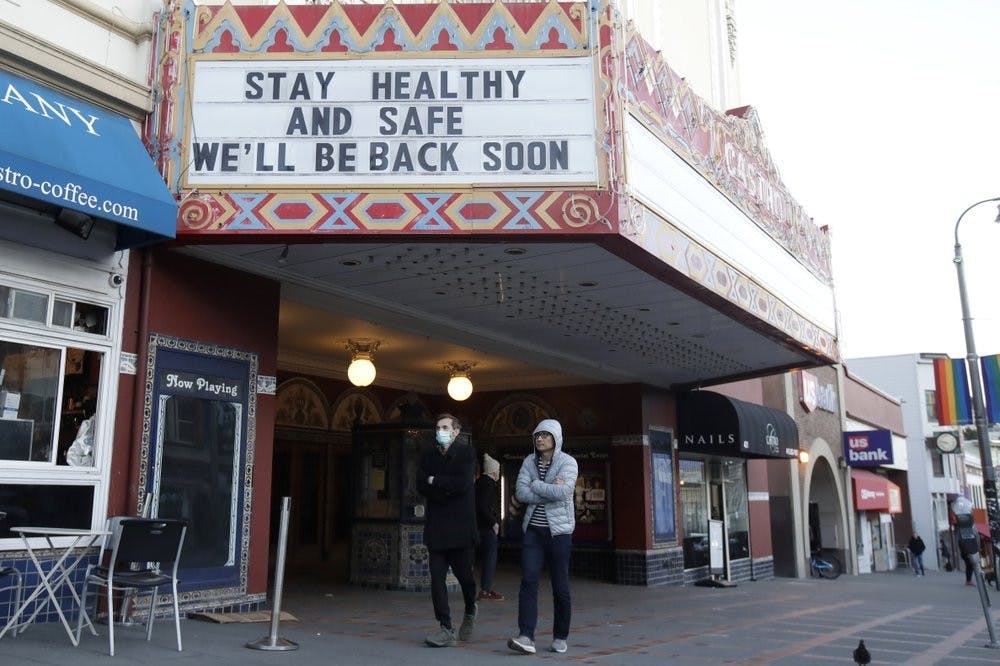
A man wears a mask while walking under the marquee of The Castro Theatre in San Francisco, March 16, 2020. Officials in six San Francisco Bay Area counties issued a shelter-in-place mandate Monday affecting nearly 7 million people, including the city of San Francisco itself. (AP Photo/Jeff Chiu)
Life in San Francisco area screeches to halt amid shutdown
About 7 million people in the San Francisco Bay Area were ordered to shelter at their homes on Monday and only leave for “essential” reasons, the strictest measures in America so far, mimicking orders in place already across Europe in a desperate attempt to slow the spread of coronavirus. Under the order, supermarkets, pharmacies, banks and gas stations remain open, along with other essential government functions and businesses.
Read more: San Francisco
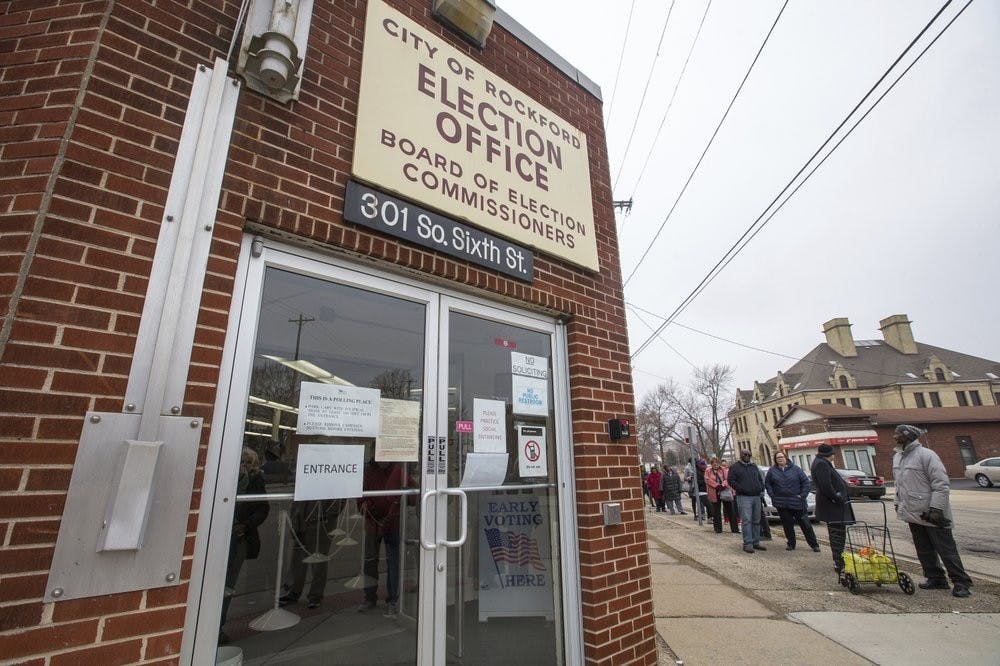
People stand in line to vote at the City of Rockford Election Office March 16, 2020, in Rockford, Ill. Gov. J.B. Pritzker and state officials said Monday that despite restaurants, bars and other businesses being ordered closed, the Illinois Primary will be held as planned. (Scott P. Yates/Rockford Register Star via AP)
Uncertainty surrounds Democratic primary as Ohio scraps vote
The Democratic presidential primary is consumed with uncertainty after leaders in Ohio called off Tuesday’s election just hours before polls were set to open, citing the need to combat the new coronavirus. Officials in Florida, Arizona and Illinois said they would move forward with the vote. Not since New York City postponed its mayoral primary on the day of the Sept. 11, 2001, attacks has an election been pushed off in such a high-profile, far-reaching way.
Read More: Donald Trump
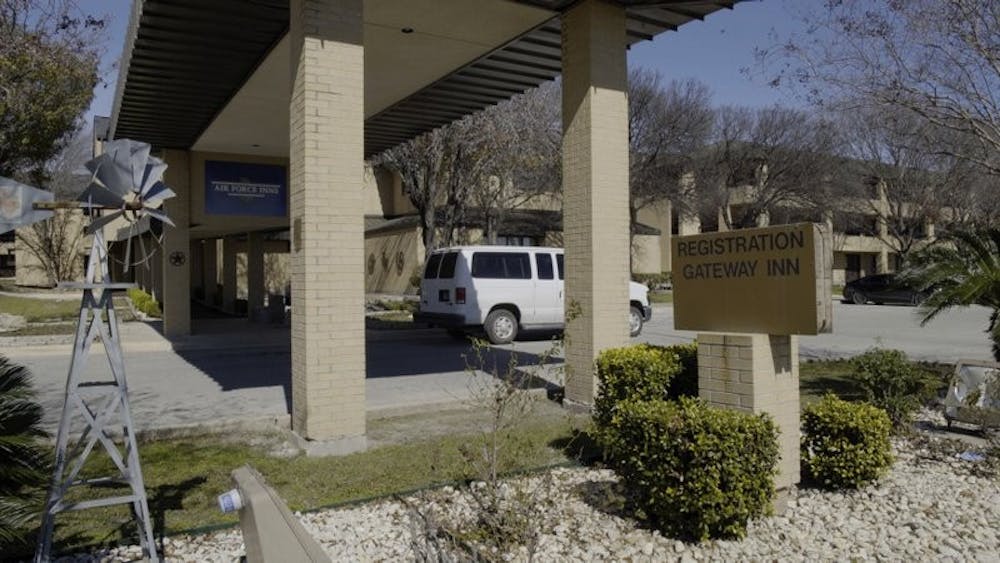
This Feb. 2, 2020, file photo provided by the Department of Defense shows empty lodging facilities at Joint Base San Antonio-Lackland, Texas. The Pentagon is already helping combat the coronavirus outbreak in the United States and is considering ways to do more. (Todd Holly/U.S. Air Force via AP, File)
Military faces limitations in responding to virus outbreak
The Pentagon is helping combat the coronavirus outbreak and is considering ways to do more, but faces limits. Its health care system is geared more toward handling combat casualties than infectious diseases. There are logistical and legal concerns about expanding the military’s role in civilian affairs, such as tasking it with enforcing quarantines. Defense officials want to be careful not to do anything to weaken its ability to defend the nation.
Read more: Virus outbreak
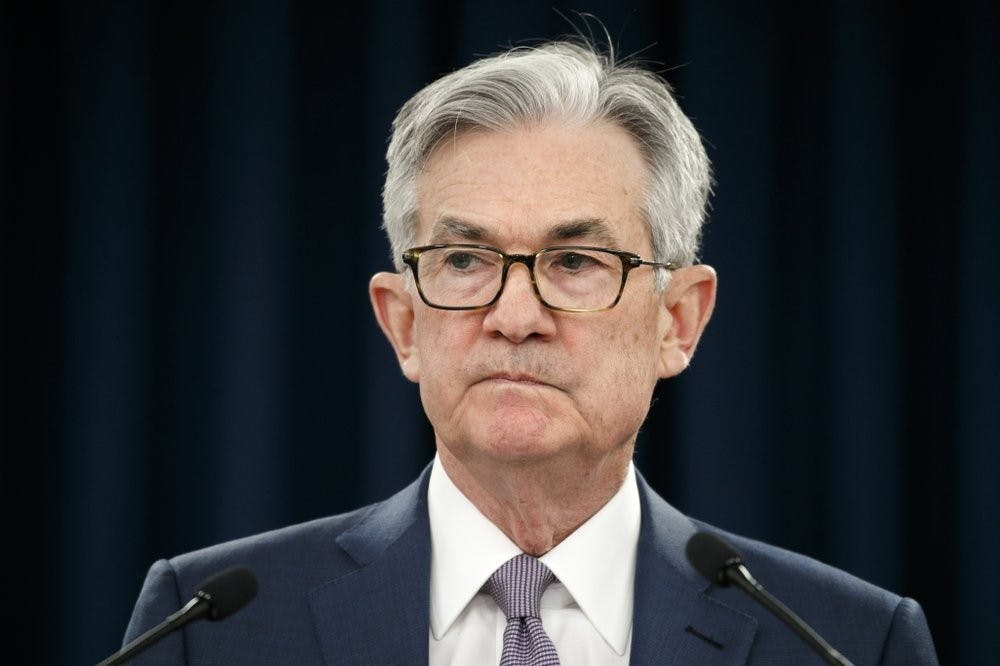
Federal Reserve Chair Jerome Powell pauses during a news conference, March 3, 2020, while discussing an announcement from the Federal Open Market Committee, in Washington. In a surprise move, the Federal Reserve cut its benchmark interest rate by a sizable half-percentage point in an effort to support the economy in the face of the spreading coronavirus. (AP Photo/Jacquelyn Martin)
AP Explains: What did the Federal Reserve do Sunday and why?
Late Sunday, the Fed slashed its benchmark interest rate to near zero and also said it will buy $700 billion in bonds. The surprise intervention was an acknowledgement by the Fed that the economy seems suddenly on the brink of recession and a signal that it will do all it can to minimize the blow to households, companies and the economy. Collectively, its actions are intended to keep markets functioning and lending flowing to businesses and consumers.
Read More: Economy

